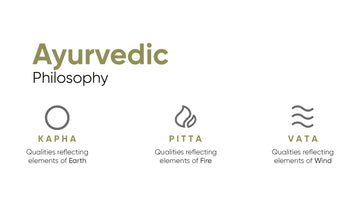
Hello readers, you must be knowing how Ayurveda and its way of mediation change life positively and has solutions for almost everything. A human body consists of 3 bases of elements ie; Vata, Pita, and Kapha. To read what doshas are according to Ayurveda you can read our blog Decoding Ayurveda's Dosha Balance With AADAR where we have decoded each of the doshas and its characteristic in any human body.
So in this blog let's explore more about doshas and let us understand what each of the doshas has to say. Ayurveda is one of the oldest holistic medicine systems, and it is still widely practiced today. Ayurveda focuses on whole-body healing by combining physical, psychological, and spiritual health and claims that a person's dosha, a type of bodily element determines their personality and health.
Even though Ayurveda translates to "The Science of Life," many health professionals challenge the belief in personal doshas due to a lack of scientific evidence. Meanwhile, Ayurvedic practitioners claim that following dosha-specific health practices leads to balance and well-being.
The five elements of Ayurvedic medicine are Aakash (Space), Jala (Water), Prithvi (Earth), Teja (Fire), and Vayu (Air). When each element is combined, three elements, or doshas, are formed: Kapha, Pitta & Vata. These doshas are thought to be in charge of a person's physiological, mental, and emotional health.
What Does Each Dosha Signify?
An Ayurvedic practitioner can determine one's dosha based on physical, emotional, mental, and behavioral characteristics based on centuries of Ayurvedic practice. Here's a quick rundown of each dosha.
KAPHA DOSHA
Kapha is an Earth & Water element. It is consistent, stable, heavy, slow, cold, and soft. Spring is known as the Kapha season, as many parts of the world gradually emerge from hibernation.
This dosha is associated with being strong, thick-boned, and caring. They are known for keeping things together and providing support to others. Kapha-dominant people are rarely upset, think before acting, and move through life slowly and deliberately.
QUALITIES:
- Compassion & Caring,
- Trust,
- Calm & Patient,
- Wisdom,
- Happiness,
- Romance,
- Strong Bones & Joints,
- Healthy Immune System.
WEAKNESS:
- Prone to Weight Gain,
- Slow Metabolism,
- Sluggishness,
- Oversleeping,
- Breathing Problems,
- Increased Risk of Heart Disease,
- Mucus Buildup, Depression,
- Requires motivation and encouragement.
A Kapha-dominant person should focus on regular exercise, a healthy diet, maintaining a warm body temperature, and developing a regular sleep routine for good health.
PITTA DOSHAS
The Pitta dosha is based on Fire & Water and is associated with a tenacity personality. Hot, light, sharp, oily, and liquid are some of the common descriptive terms. Summer is known as the Pitta season because of its long, hot days.
Pitta people are said to have a muscular build, to be very athletic, and to be strong leaders. They're driven, goal-oriented, and competitive. Nonetheless, their aggressive and tenacious nature can be off-putting to some people, leading to conflict.
QUALITIES:
- Intelligence,
- Purposefulness,
- Quick Learning,
- Self-Determination,
- Easy Mastery of Skills,
- Strong Desire for Success,
- Strong & Natural Leaders,
- Quick Metabolism & Good CIrculation,
- Healthy Skin & Hair
WEAKNESS:
- Impatient,
- Prone to Conflict,
- Always Hungry,
- Mood Swings,
- Prone to Acne & Inflammation,
- Sensitive to Hot Temperatures.
Those with a pitta dosha should prioritize work-life balance and avoid extreme heat e.g., Weather, Spicy Food.
VATA DOSHA
Vata is made up primarily of the elements Air & space (also known as ether) and is commonly described as cold, light, dry, rough, flowing, and spacious. Autumn is associated with Vata because of its cool & crispiness. Those with the Vata dosha are typically thin, energetic, and creative. They are known for their ability to think outside the box, but they are easily distracted. Furthermore, their mood is heavily influenced by the weather, the people around them, and the foods they consume.
QUALITIES:
- Quick Learning,
- High Creativity & Multitasking,
- Kindness,
- Flexible & Naturally Slim
WEAKNESS:
- Forgetful & Anxious,
- Unstable Mood,
- Easily Overwhelmed,
- Highly Sensitive to Cold,
- Poor Sleep,
- Irregular Appetite & Eating Patterns,
- Prone to Digestive Issues.
A Vata-dominant person should follow a regular daily routine, manage stress through meditation and other relaxing exercises, and maintain a warm body temperature by avoiding cold weather and consuming warm foods and drinks for optimal health, according to Ayurveda
Eventually, Ayurveda seeks to reduce disease, particularly chronic disease, and increase positive health in the body and mind through the use of these three vital essences that aid in renewal and transformation. It's really important to know what Dosha type we are and how we can befriend it to make it more effective and support our body system in a much better way.
To know about your body type and dominating doshas of your body, you can contact our Health Expert or connect us at +919867667699




